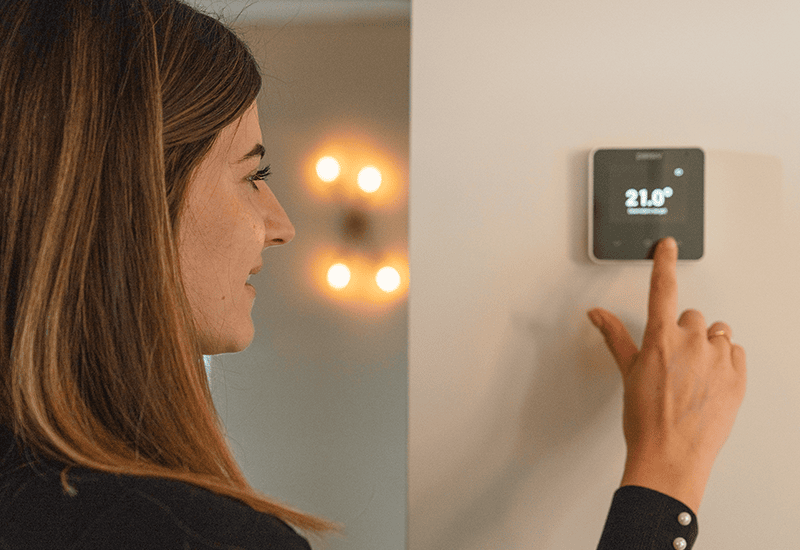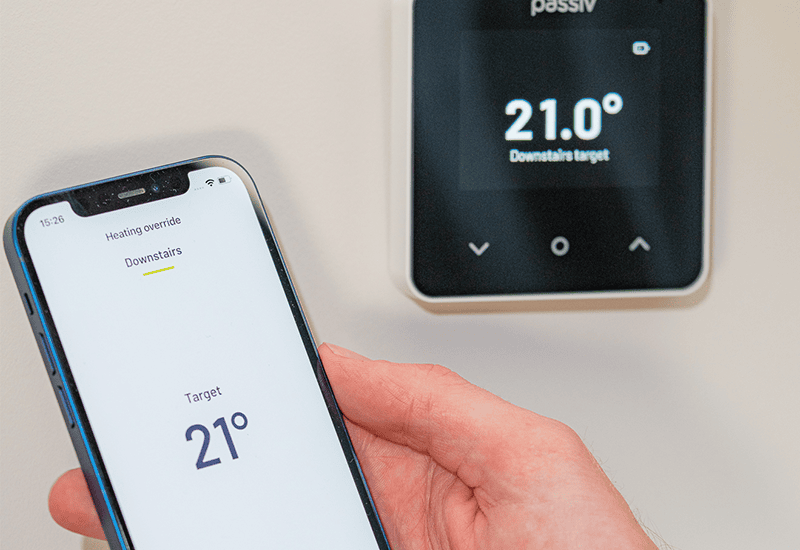On 19 November 2024, the Department for Energy Security and Net Zero (DESNZ) hosted the second OpenADR Users Conference in London. Passiv was in attendance, with Product Analyst Robbie Scudamore as a guest speaker.
Robbie spoke to attendees about the Energy Smart Heat Pump project, which started in 2022 in collaboration with Samsung. The project, as part of the Interoperable Demand Side Response (IDSR) programme funded by DESNZ, saw Samsung air source heat pumps fitted with Passiv’s smart controls to enable smart automated flexibility.
The IDSR programme aimed to demonstrate the PAS 1878 standard, which outlines an architecture for domestic flexibility. PAS 1878 introduces three key components within this architecture: Energy Smart Appliances (ESAs), Consumer Energy Managers (CEMs), and Demand Side Response Providers (DSRSPs). Between them, the standard enables domestic devices to automatically respond to flexibility requirements without the need for householder intervention.
PAS 1878 utilises the existing standard OpenADR for communications between the CEM and the DSRSP. OpenADR provides a standardised language that allows aggregators to broadcast flexibility requests to connected assets, and for those assets to respond in sort.
Passiv’s presentation covered some of the benefits and drawbacks of PAS 1878, as well as thoughts and suggestions on its future. The introduction of PAS 1878 provides a valuable framework for discussing and planning domestic flexibility. Defining the role of assets, smart controls and aggregators enables collaboration within the industry to maximise user benefits from flexibility. Utilising OpenADR, a standard which is primarily used in America, is an important step in opening up assets to flexibility services.
However, PAS 1878 carries with it significant barriers to achieving interoperable DSR. The implementation of OpenADR utilised is heavily modified, resulting in large, unmanageable messages and difficult implementation. The flexibility system used – with profiles forecasted by the ESA – is unsuitable for devices like heat pumps, where there is no way to predict the needs of the market. It is essential that future iterations of PAS 1878 utilise DSRSP-driven communication that enables ESAs and CEMs to provide bespoke, effective flexibility, as well as allowing CEMs to provide aggregate flexibility for a variety of assets. The newly released OpenADR 3.0 features a host of benefits over its predecessor and could allow PAS 1878 to reduce the burden on manufacturers, controls providers, and DSRSPs, enabling cheaper and more efficient flexibility.
To read more about how Passiv is contributing to the forward development of ESAs and flexibility, read about our response to the recent Smart and Secure Energy Systems consultation, in which we discuss the role of smart controls in domestic flexibility.




